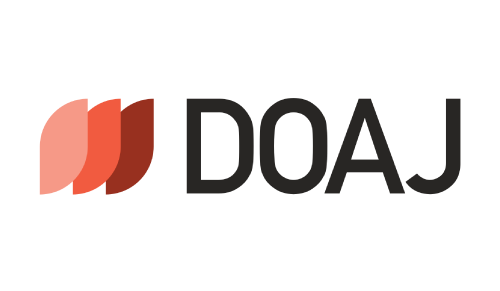Wastewater Management as a Part of Solution for Water Resources Problem in Erbil City
DOI:
https://doi.org/10.21271/ZJPAS.36.5.9Keywords:
Erbil City, Management, Wastewater, Water Resources, wastewater treatment.Abstract
In Erbil City, municipal wastewater (MWW) is disposed directly without any treatment processes in the natural environment water body and in some places used for irrigation purposes. Untreated MWW causes problems for the environment, and people's health. Water quantity and quality variation produce complications for water sources in Erbil City, Kurdistan Region-Iraq. There is a lack of performing MWW management fundamentals in the area as well. This research aimed to study the MWW management in Erbil City, presenting water resource difficulties and bringing about suitable solutions for the water resource problems, and also to highlight the risk for the poor Management. MWW Data on Erbil municipal (EMWW) water quality parameters were collected and analyzed for the study period (four months), beginning in October 2022 and ending in March 2023. Twelve EMWW quality parameters were captured and tested in the Laboratory, arranged, and compared with MWW disposal criteria and local standards. The following MWW parameters include pH, electrical conductivity (EC), total dissolved salts (TDS), chloride (CL), total solids (TS), total alkalinity, total acidity, chemical oxygen demand (COD), and colour. The results showed that Erbil's MWW characteristics in terms of temperatures ranged between 11-23 °C and in turn, affected biological species activities. Maximum PH value was 7.7. Total alkalinity found in the range from 140 to 178 mg/l. Chloride concentration results showed for October was 62 mg/l and the maximum value was 80 mg/l in November due to the increment in temperature and evaporation. The range of the COD values of sewage water for five months was 246 -773 mg. Erbil's MWW's moderate to medium strength may be treated and utilized for landscaping, fountains, and irrigation, minimizing the need for fresh water from resources like wells and surface water in the Greater Zab River.
References
Abdel-Aziz, A.O. and Smith, E., 2004. Natural Factors Affecting the Distribution of Heavy Metals in an Industrial Drain in Cairo, Egypt. In Bridging the Gap: Meeting the World's Water and Environmental Resources Challenges (pp. 1-10).
Al-Zboon, K., Radaideh, J. and Hung, Y.T., 2012. Municipal wastewater treatment. In Handbook Of Environment And Waste Management: Air and Water Pollution Control (pp. 1177-1222).
AhmedKhoshnaw, A.R. and KARPUZCU, M., 2018. Optimisation of multipurpose reservoir operation-Bekhme dam greater Zab river basin, Erbil governorate and Duhok governorate-Iraq. Polytechnic Journal, 8(1), p.6.
Aziz, S.Q., 2020, November. Variation of Erbil municipal wastewater characteristics throughout 26 years (1994-2020) with possible treatments and reusing: A review. In IOP Conference Series: Materials Science and Engineering (Vol. 978, No. 1, p. 012044). IOP Publishing.
Amin, K.N. and Aziz, S.O.,2005, Feasibility of Erbil Wastewater Reuse lbr Irrigation.
Aziz, S.Q., Saleh, S.M. and Omar, I.A., 2019. Essential treatment processes for industrial wastewaters and reusing for irrigation. Zanco Journal of Pure and Applied Sciences, 31(s3), pp.269-275.
Aziz, S.Q. and Mustafa, J.S., 2019. Step-by-step design and calculations for water treatment plant units. Advances in Environmental Biology, 13(8), pp.1-16.
Aziz, S.Q. and Fakhrey, E.S.A., 2016, August. The effect of kawergosk oil refinery wastewater on surrounding water resources. In 1st International Conference on Engineering and Innovative Technology (pp. 12-14).
Aziz, F.H., Darokha, S.N. and Shekha, Y.A., 2001, February. Ecological and microbiological studies of Erbil citys sewerage. In Sci. Conf. of water-Erbil. J. of Brayeti-Cent (Vol. 18, pp. 189-206).
Aziz, S.Q. and Ali, S.M., 2017. Characterization of municipal and dairy wastewaters with 30 quality parameters and potential wastewater treatment by biological trickling filters. International Journal of Green Energy, 14(13), pp.1156-1162.
Bapeer, U.H., 2010. A study on the main sewage channel in Erbil city Destiny and its matching to irrigation purpose. Journal of Kirkuk University-Scientific Studies, 5(2), pp.61-75.
Beutler, M., Wiltshire, K.H., Meyer, B., Moldaenke, C., Luring, C., Meyerhofer, M. and Hansen, U.P., 2014. APHA (2005), Standard Methods for the Examination of Water and Wastewater, Washington DC: American Public Health Association. Ahmad, SR, and DM Reynolds (1999), Monitoring of water quality using fluorescence technique: Prospect of on-line process control. Dissolved Oxyg. Dyn. Model. Case Study A Subtrop. Shallow Lake, 217, p.95.
Dizayee, R., 2018. Effects of Illegal wells on groundwater level in the central sub-basin, Erbil Basin, Erbil, Kurdistan Region-Iraq. American Scientific Research Journal for Engineering, Technology, and Sciences (ASRJETS), 39(1), pp.244-249.
Environment Protection Agency (EPA) (2003).Standards for effluent discharge, Regulations, General Notice No. 44. The Environmental Protection Act 2002. Regulations made by the Minster under section 39 and 96 of the Environmental Protection Act 2002.
Iraqi Environmental Standards (2011), Contract No.: W3QR-50-M074, Rev. No.: 03 Oct. Morning
Star for General Services, LLC Iraq, West Qurna I Project, EXHIBIT Eight.
Ismael, S. O., Kakil, K., Ahmed, B. M., & Aziz, S. Q., 2024. Municipal Wastewater Characterization and Natural Treatment Using Reed Beds. International Journal of Chemical and Biochemical Sciences, 25 (19) (2226-9614).
Kareem, D.A., M Amen, A.R., Mustafa, A., Yüce, M.I. and Szydłowski, M., 2022. Comparative analysis of developed rainfall intensity–duration–frequency curves for Erbil with other Iraqi Urban areas. Water, 14(3), p.419.
Messrouk, H., hadj Mahammed, M., Touil, Y. and Amrane, A., 2014. Physico-chemical characterization of industrial effluents from the town of Ouargla (South East Algeria). Energy Procedia, 50, pp.255-262.
Mustafa, B.Y. and Sabir, S., 2001. Reuse of Erbil city sewage for irrigation purposes. In Sci. Conf. of Water-Erbil. J. Brayeti-Cent (Vol. 18, pp. 303-317).
Nanekely, M., Scholz, M. and Aziz, S.Q., 2017. Towards sustainable management of groundwater: A case study of semi-arid area, Iraqi Kurdistan region. European Water, 57, pp.451-457.
Sankhla, M.S., Kumari, M., Nandan, M., Kumar, R. and Agrawal, P., 2016. Heavy metals contamination in water and their hazardous effect on human health-a review. Int. J. Curr. Microbiol. App. Sci (2016), 5(10), pp.759-766.
Downloads
Published
How to Cite
Issue
Section
License
Copyright (c) 2024 Bahar Ahmed, Shuokr Qarani Aziz, Sarwah Othman Ismael , Kasro Kakil Dizayee

This work is licensed under a Creative Commons Attribution 4.0 International License.














